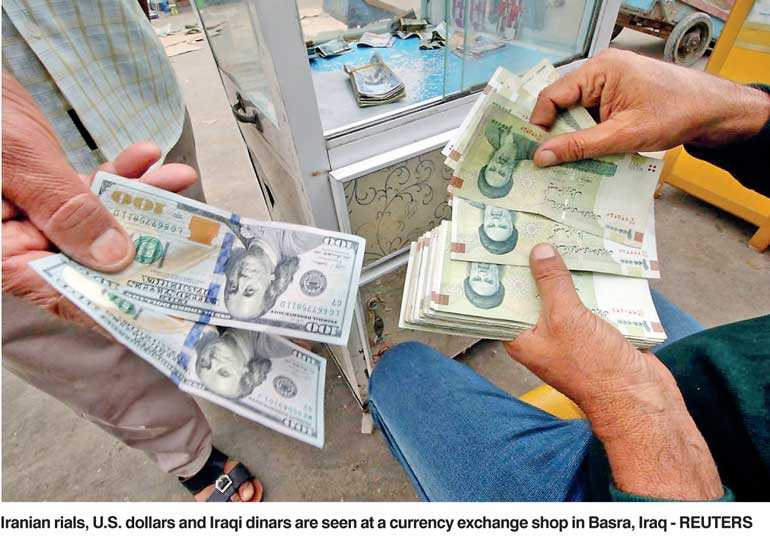Friday Feb 20, 2026
Friday Feb 20, 2026
Tuesday, 6 November 2018 00:00 - - {{hitsCtrl.values.hits}}

WASHINGTON/DUBAI (Reuters) - Iran said it would defy the re-imposition of more U.S. sanctions on Monday, condemning as “economic war” Washington’s attempt to curb Tehran’s missile and nuclear programs and weaken its influence in the Middle East.
The U.S. move restores sanctions lifted under a 2015 nuclear deal negotiated by the administration of President Barack Obama and five other world powers. It adds 300 new designations in Iran’s oil, shipping, insurance and banking sectors.
The European Union, which continues to back the nuclear deal, said it opposed the reimposition of sanctions and big oil buyer China said it regretted the move.
The restoration of sanctions is part of a wider effort by U.S. President Donald Trump to force Iran to curb its nuclear and missile programs as well as its support for proxy forces in Yemen, Syria, Lebanon and other parts of the Middle East.
U.S. Secretary of State Mike Pompeo said on Sunday the penalties set to return on Monday “are the toughest sanctions ever put in place on the Islamic Republic of Iran.”
However, Iran’s clerical rulers have dismissed concerns about the impact of sanctions on the economy.
“Today the enemy (the United States) is targeting our economy...the main target of sanctions is our people,” Iranian President Hassan Rouhani said.
“America wanted to cut to zero Iran’s oil sales...but we will continue to sell our oil...to break sanctions,” Rouhani told economists at a meeting broadcast live on state television.
The sanctions were illegal and unfair, he said.
“This is an economic war against Iran but ... America should learn that it cannot use the language of force against Iran ... We are prepared to resist any pressure,” Rouhani said.
Trump announced in May his government was withdrawing from what he called the “worst ever” agreement negotiated by the United States. Other parties to the deal, including Britain, France, Germany, China and Russia, say they will not leave.
The deal had seen most international financial and economic sanctions on Iran lifted in return for Tehran curbing its disputed nuclear activity under U.N. surveillance.
Details of the sanctions will be released at a news conference scheduled for 8:30 a.m. EST (1330 GMT) with Pompeo and Treasury Secretary Steven Mnuchin.
The European Union is opposed to the U.S. decision to reimpose oil and financial sanctions, European Economic Affairs Commissioner Pierre Moscovici said. “The European Union does not approve of it,” Moscovici told franceinfo radio.
China, India, South Korea, Japan and Turkey - all top importers of Iranian oil - are among eight countries expected to be given temporary exemptions from the sanctions to ensure crude oil prices are not destabilized.
The countries will deposit Iran’s revenue in an escrow account, U.S. officials have said.
The curbs come as the United States is focused on U.S. congressional and gubernatorial elections on Tuesday. Campaigning in Chattanooga, Tennessee, on Sunday, Trump said his “maximum pressure” against Iran was working.
“Iran is a much different country than it was when I took office,” said Trump, adding: “They wanted to take over the whole Middle East. Right now they just want to survive.”
To keep the deal alive, the remaining parties to the Iran accord are trying to maintain trade with Tehran, despite scepticism that this is possible.
Diplomats told Reuters last month that a new EU mechanism to facilitate payments for Iranian oil exports should be legally in place by Nov. 4 but not operational until early next year.
They cautioned, however, that no country had volunteered to host the entity, which was delaying the process.
“We are in regular contact with other signatories of the nuclear deal...setting up (a) mechanism to continue trade with the European Union will take time,” Iran’s Foreign Ministry spokesman Bahram Qasemi said in Tehran.